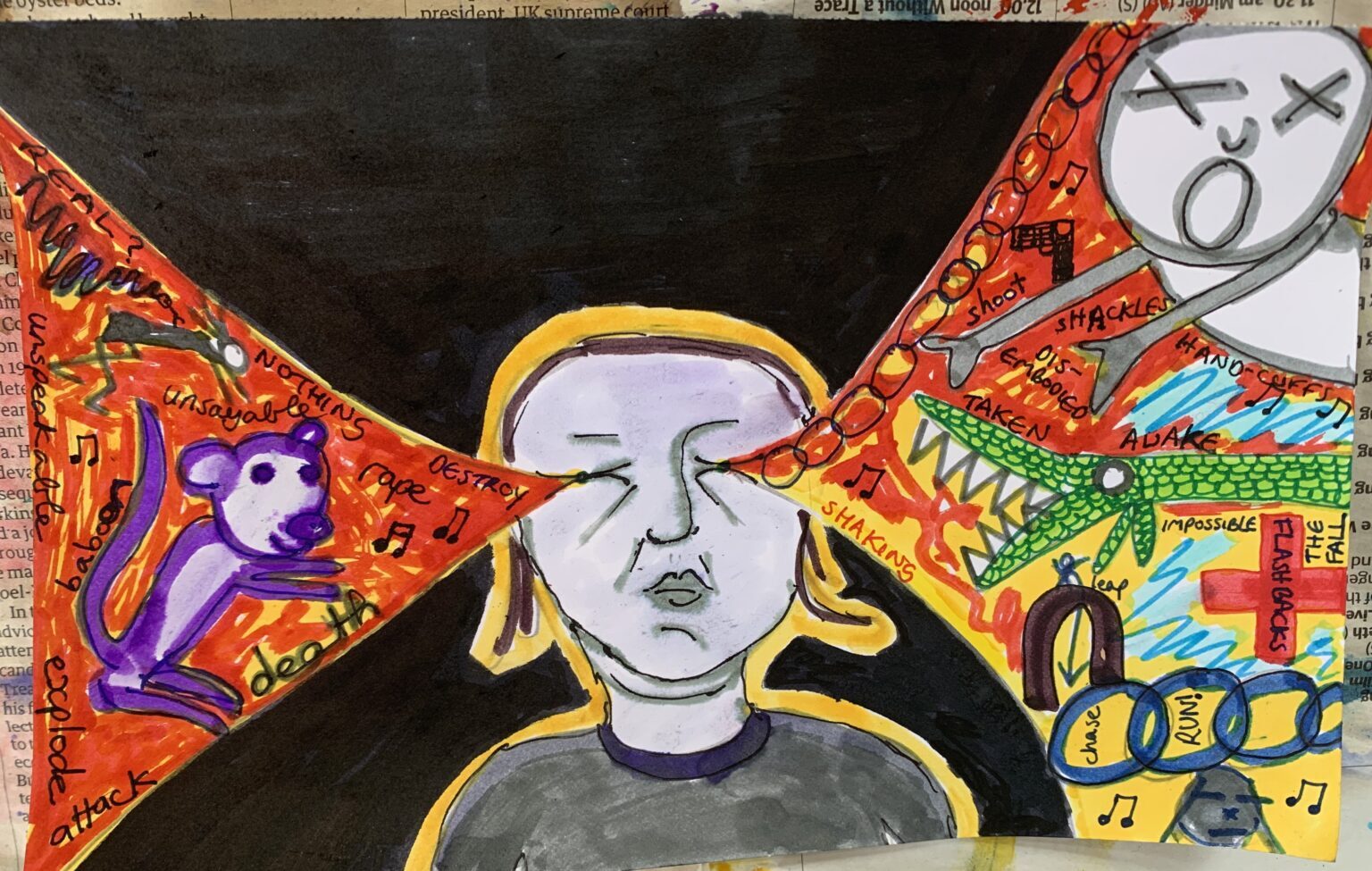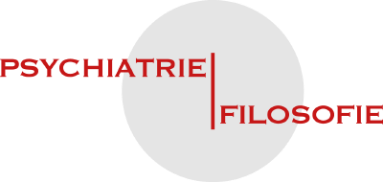Too Mad to be True IV - Madness and its Expressions

May 14-15, 2026, Ghent (Belgium) + online
The fourth edition of Too Mad to be True will take place on May 14 and 15, 2026, once again in the magnificent Dr. Guislain Museum in Ghent. This year's theme is Madness and its Expressions. (Image: 'My visions, as they happen', Lorna Collins.)
Madness has been a privileged object of interest across a broad range of disciplines, including the mental health sciences (psychiatry/psychology), philosophy, mad studies, religion studies, aesthetics and anthropology. In each of these disciplines, madness acquires a different expression and meaning, partly determined by prevailing assumptions, aims, fears and desires: madness as the expression of pathology and explanatory or therapeutic ambition in the mental health sciences; as a real-life thought experiment or as circumscribing the bounds of reason and sense in philosophy; as a site for revolution, political critique and emancipation in mad studies; as (a potential threat to) authentic belief or divine inspiration in religion; as embodying (the limits to) artistic creativity and cultural exploitation in aesthetics; or as a cultural construct that provides a mirror into particular cultures and societies. Alongside, and through, these diverse disciplinary expressions, there is the expression of madness by mad individuals themselves, whose voice is muffled, amplified, transformed and appropriated. In this fourth edition of the Too Mad to be True conference, we interrogate and offer a forum for these different expressions and configurations of madness, around six subthemes (see here).
Prices, registration and ticket sales
The fees for participating in this conference are:
- Standard: Participation in person + lunch/drinks: € 100,00
- Psychiatrists: Participation in person + lunch/drinks: € 140,00 (accreditation is being applied for)
- Students and people with low income: Participation in person + lunch/drinks: € 60,00
- Online participation (zoomlinks follow later) : € 25,00
Here you can register and buy your ticket.
If you are a donor to the Psychiatry and Philosophy Foundation, you are eligible for a 15% discount on your ticket. You can request the discount code via info@psychiatrieenfilosofie.nl.
Program
We are putting together a diverse two-day program featuring five engaging keynote speakers and approximately 60 speakers who will give very different presentations, performances, and perspectives. The full program and a list with all speakers, abstracts and bio's wil be published later on this page.
Keynote speakers

Alan Bristow - Paranoid Reading for Paranoid Writing? On the Possibilities of Mad Knowledge

Anna Six - The Illusion of Diagnosis: Psychiatric Training and the Peformance of Pathology
In 2006 Howard Schatz published a photographic book called In Character: Actors Acting. This volume is a collection of close-up photographs of famous actors performing a character note: ‘You are a loser at a bar asking a pretty girl what her sign is.’ or ‘a mathematics genius realizing that your life’s work is based on a flawed formula’. The images attempt to capture the emotional truth of these given circumstances. In this way, the book exemplifies the normative practice of acting in the West as being the imaginative reproduction of decipherable behaviours for an audience.

Ben Alderson-Day - The Presence of Madness, and the Madness of Presence
Feelings of unseen presences are abound in accounts of psychosis and states of unreality. But does madness itself have a feeling of presence? And what can the experience of felt presence tell us about madness more broadly? From Strindberg’s “Unknown” to Paul Kingsnorth’s Beast; and from Bertha Mason to The Octopus Man, the presence and possibility of madness often loom large before other things begin to change. In this talk I will explore how fear, personification and lost agency intertwine to bring presence to madness, drawing on accounts from literature, film, first-person perspectives and clinical research. I will also talk about how feelings of presence across a spectrum of situations almost all touch on aspects of madness, in ways that illuminate the deep complexities of self and other.
Ben Alderson-Day is a Professor of Psychology and Co-Director of the Discovery Research Platform for Medical Humanities. A specialist in psychosis and psychopathology, his works spans psychology, psychiatry, philosophy and cognitive neuroscience. From 2012-2022 he was a member of Hearing the Voice, Durham University's interdisciplinary investigation of voice-hearing (or auditory verbal hallucinations) and in 2024 he became Scientific Chair of the International Consortium on Hallucinations Research. In 2023 his book "Presence: The Strange Science of the Unseen Other" won the British Psychological Society Book Award for Popular Science.

Helene Speyer - Lived Experience, philosophy, and transforming psychiatry

Stefania Pandolfo
Abstract + bio: coming soon
Conference themes: Madness and its Expressions
TMTBT I, TMTBT II and TMTBT III
In 2021: the first TMTBT conference: Philosophies of Madness
In 2023: the second TMTBT conference: the Promises and Perils of the First Person Perspective
In 2024: the third TMTBT conference: The Paradoxes of Madness
Mad caveat
Although madness on this conference is mainly considered on a philosophical and psychopathological level, we cannot forget about madness, on a global, societal level. In the context of global warming and ecological destruction we therefore ask all conference participants to be aware of their CO2 emissions and reduce them as much as possible while traveling to and from the conference.
Advisory board
Alastair Morgan (Senior Lecturer Mental Health/ Critical Theorist at the University of Manchester, UK).
Angela Woods (Professor of Medical Humanities at the Durham University, UK).
Clara Humpston (Lecturer in Mental Health at the Department of Psychology at the University of York, UK).
Louis Sass (Professor of Clinical Psychology at the Graduate School of Applied and Professional Psychology at Rutgers University, US).
Stijn Vanheule (Professor of Psychoanalysis and Clinical psychological Assessment at Ghent University).
